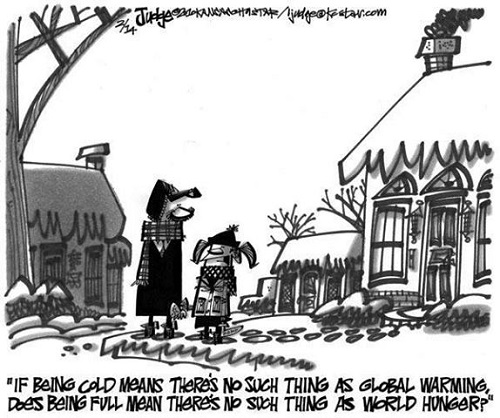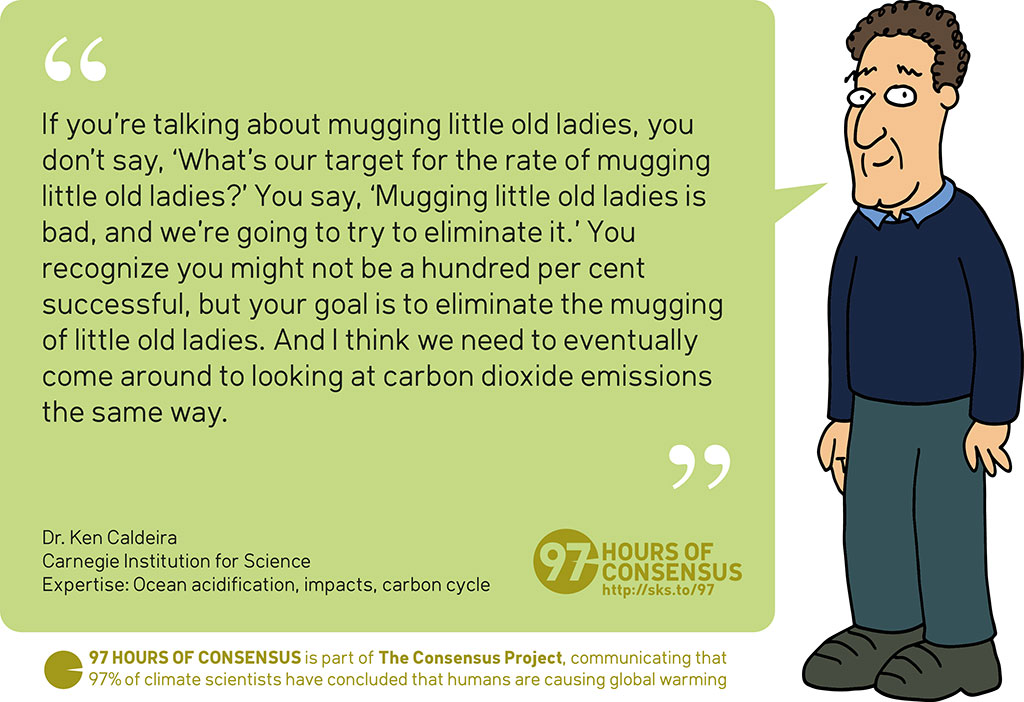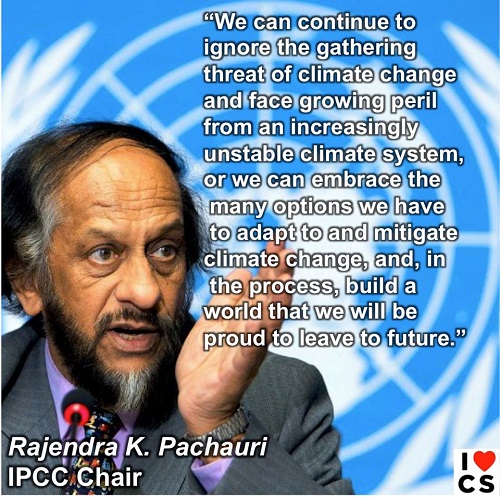2014 SkS Weekly Digest #47
Posted on 23 November 2014 by John Hartz
SkS Highlights
President Obama's climate leadership faces the Keystone XL challenge by John Abraham attracted the highest number of comments of the articles posted on SkS during the past week. Coming in a close second was John Cook's Why we need to talk about the scientific consensus on climate change. Both articles were inititally posted on the blog, Climate Consensus - the 97% hosted on The Guardian.
El Niño Watch
Tropical Pacific Ocean moves closer to El Niño Enso Wrap-Up posted by the Australian Bureau of Meteorology on Nov 18, 2014
Toon of the Week

h/t to I Heart Climate Scientists
Quote of the Week
According to Francis*, the extreme U.S. winter of last year and now, the extremes at the beginning of this season, fit her theory. "This winter looks a whole lot like last winter, it’s a very amplified jet stream pattern," she says. "We know that when we get these patterns, it tends to be very persistent. And it is definitely the type of pattern that we expect to see more often as the Artic continues to warm so fast."
*Jennifer Francis, Research Professor, Rutgers University
There’s growing evidence that global warming is driving crazy winters by Chris Mooney, Wonkblog, Washington Post, Nov 20, 2014
SkS Spotlights

Coming Soon on SkS
- Will New Climate Treaty Be a Thriller, or Shaggy Dog Story? (Stephen Leahy)
- Senator Whitehouse optimistic about the latest global warming bill in Congress (Dana)
- 2014 SkS Weekly News Roundup #48A (John Hartz)
- Mercury Rising: 2014 Likely to Surpass 2010 as Warmest Year on Record (Rob Painting)
- China's Role in Solving Climate Change (John Abraham)
- Drought and Deforestation in Brazil (Alexandre Lacerda)
- 2014 SkS Weekly News Roundup #48B (John Hartz)
Poster of the Week

SkS Week in Review
- 2014 SkS Weekly News Roundup #47B by John Hartz
- Why we need to talk about the scientific consensus on climate change by John Cook
- 2014 SkS Weekly News Roundup #47A by John Hartz
- Turbulent week for global climate policy leaves many questions by Graham Readfearn
- President Obama's climate leadership faces the Keystone XL challenge by John Abraham
- Just how ‘Sapiens’ in the world of high CO2 concentrations? by Marcin Popkiewicz
- 2014 SkS Weekly Digest #46 by John Hartz































 Arguments
Arguments






























The "Tropical Pacific Ocean moves closer to El Niño" link is not working. It links to a page with the address "http://www.skepticalscience.com/ov.au/climate/enso/" which gives a 404 error.
[JH] Link fixed. Thanks for bringing this glitch to our attention.
I am looking forward to Alexandre Lacerda's upcoming SkS item “Drought and Deforestation in Brazil”
The need to be able to reasonably predict things like El Nino/La Nina and resulting regional rainfall is highlighted by the current drought in Sao Paulo.
Even if El Nino could be more reliably predicted the potential rains in Sao Paulo would appear to be difficult to reliably forecast. The presentation of El Nino impacts summarized by NOAA here indicates that rainier conditions would be expected in southern Brazil but potentially not as far north as Sao Paulo.
An added challenge of the rapid climate change due to rapidly increased impacts like atmospheric CO2 appears to be that rapid short-term changes of climate patterns make it even more difficult to establish reliable short-term forecast models (models to regionally predict things like generally expected rainfall 3 to 6 months in advance) because what has happened in the past in the short-term is less likely to be what will happen in the future.
Sao Paulo appears to be at the mercy of whatever will come in the next few months. And a few years ago Tofino on 'reliably rainy' Vancouver Island had its reservoir almost run dry without getting warning several months in advance that it was likely to happen.